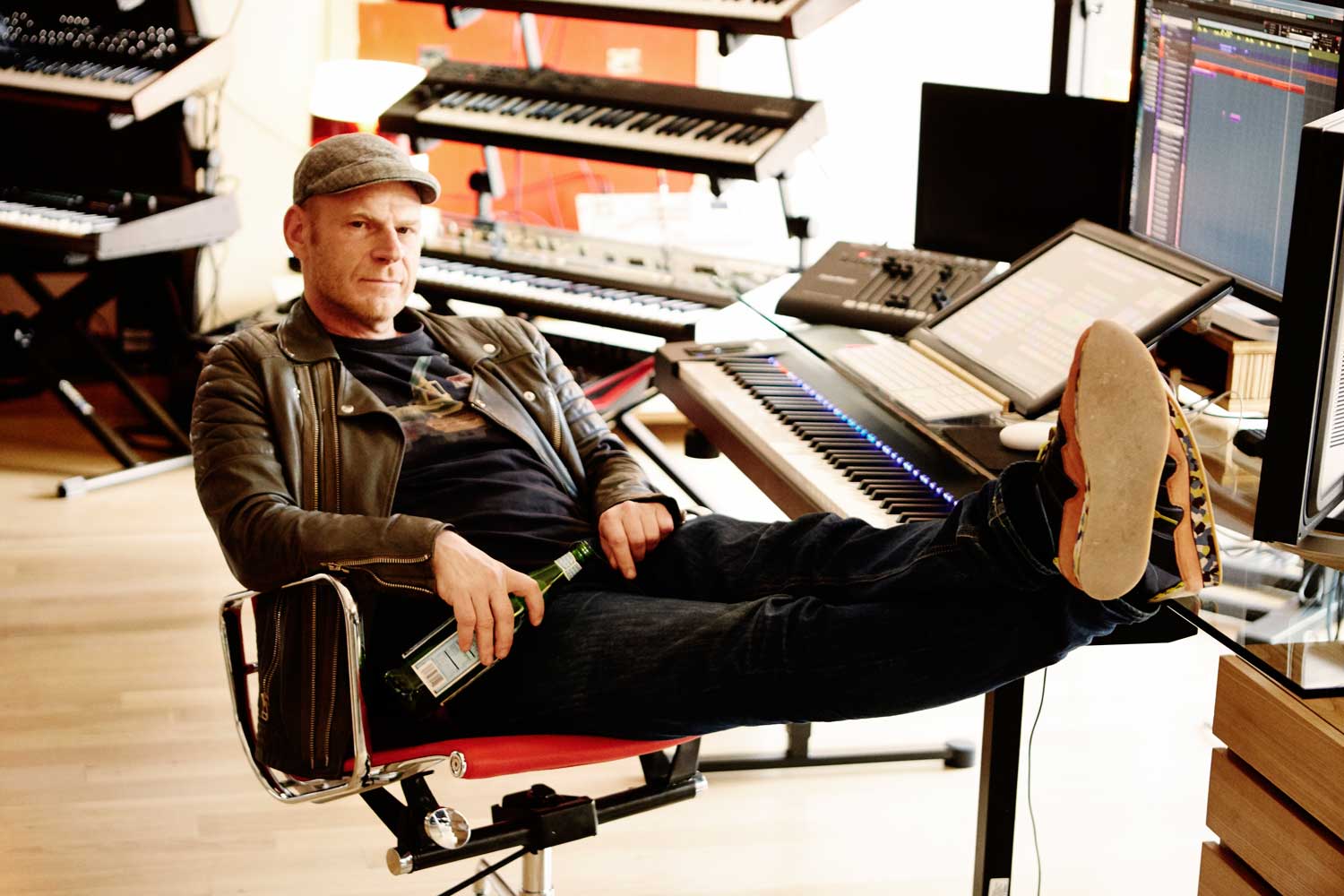
Composer Tom Holkenborg, who scores as Junkie XL. (Photo: Dirk Kikstra)
Working with producers Peter Jackson and James Cameron in the same year was mind-bending, according to composer Tom Holkenborg, the composer known as Junkie XL, who took to social media to tout the December release Mortal Engines and 2019’s Alita: Battle Angel.
“I’m excited to officially announce that I am finishing up the original score to the upcoming adventure film Alita: Battle Angel – directed by Robert Rodriguez and produced by James Cameron,” Holkenborg said. “Both Robert and James are two of my cinematic heroes. To be able to work with them both on such a visionary project as Alita has been unbelievable. They both want to push the envelope and encouraged me to do the same with the score.”
The film is adapted from Yukito Kishiro’s manga series and arrives in theaters on February 14, 2019. “It’s been an incredible project to be involved with and I can’t wait for you to see and hear the movie!,” Holkenborg shared.
The comments were posted to Holkenborg’s Facebook, Twitter and Instagram accounts, which on Aug. 31 contained his views about working on Mortal Engines: “It’s a dream come true working with Christian and being welcomed into Peter’s Wingnut family. Traveling to their facility in New Zealand has been nothing short of mind-blowing, I feel like I’ve learned more about moviemaking in the past six months, than most could hope to in a lifetime. I am extraordinarily grateful to Peter, Fran and Christian for this opportunity and their friendship. Scoring Mortal Engines pushed me to my limits, it’s an incredible project to be part of.”
Mortal Engines is based on Philip Reeve’s book of the same title and set thousands of years after civilization was destroyed by a cataclysmic event. Cities survive a now desolate Earth by moving around on giant wheels, attacking and devouring smaller towns to replenish their resources. Born in Sweden, Holkenborg’s has more tha 120 scores to his credit, spanning video games, television and film, including such box office chart-toppers as Deadpool, Mad Max: Fury Road, Black Mass and Divergent.
In late October, Holkenborg participated in the Variety Music for Screens Summit, sharing the stage with fellow ASCAP composers to talk about his life and work. “My career actually started as an engineer in a very small studio when I was 14, then I became an engineer and producer before I got into making music myself.” Holkenborg recounted recording punk bands and metal bands and, in the late ’80s, playing in an industrial metal band himself. “All that producing, the touring and seeing so many bands at festivals — just having worked with so many bands and dance artists in the past — it’s very convenient when you work on a film score right now. Directors are more and more open-minded to take a standard path of where the film score needs to be and take it completely to the left, is what I like to say. My film score is usually when I start, very left, then I need to put some water in the wine, if that is an English expression, then I end up at what the center is of what film scoring is. But I usually end up on the left, and they let me do my bit.”
Holkenborg went on to note there are “two types of directors”: the type that take risks, and the kind that don’t want to experiment at all. “There are some that feel things are too much very quickly. You start with a drum, and they’re like ‘It’s too much,’ and you say ‘it’s just a drum!’ And they’re like ‘Yeah, it’s too much. Take it out.’ “
Rather surprisingly, for a techno guy, Holkenborg says he’s a fan of a lot of 1950’s scoring techniques. “There are things about melodic development I really liked in the ’50s that obviously you cannot do any more. Like the lady walks into the room for the very first time at the beginning of the movie and it’s ‘Nyeah, nyeah, nyeaaahhhhhh.’ The love theme is stated right there. We can’t do that anymore, but there’s ways to get there. But there are some directors that are simply saying ‘I don’t want that,’ and then there are other saying, ‘No, we do want that.’”
From Holkenborg’s perspective, the is “if a film score ends up somewhere in the middle, and it doesn’t really do what it’s supposed to do on either end. That’s usually not the fault of the composers, but just where you end up after a really long journey of like seven or eight months and sometimes you have to change stuff like 10 days before [the film is delivered]. I remember having to record Tomb Raider in London on January 3 of this year. You go through this process of five, six, seven months, and then 10 days – the day before Christmas there’s a big playback meeting at my studio and this needs to be different, that needs to be different. You’re basically reshaping the score in 10 days.” It’s all part of the life of a working composer in Hollywood, Holkenborg says, and anyone aspiring to that career needs to come in with eyes (and ears!) wide open.


Comments are closed.